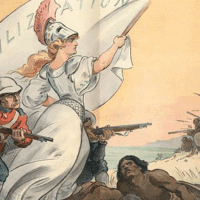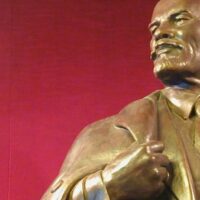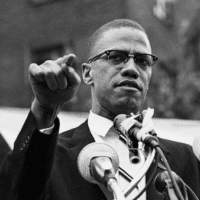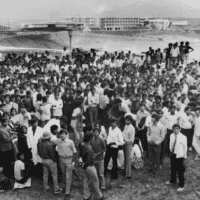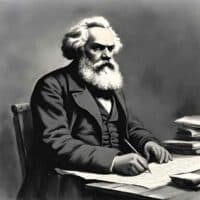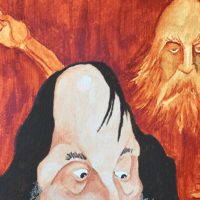-
Chile: A major victory for the People and the Left, with strategic impact
The victory of Jeannette Jara in the ruling coalition’s primary is a major triumph for the people and the left.
-
China is not a monolith
The Communist Party and socialist construction.
-
‘Islamesque: The Forgotten Craftsmen Who Built Europe’s Medieval Monuments’ – book review
Diana Darke’s brilliant history of medieval architecture reveals the extent of Islamic influence on the foundational phase of Western European art and buildings, finds Dominic Alexander.
-
Intellectuals and neo-fascism
When Bertolt Brecht wrote: “Hungry man; reach for the book” he was articulating the Left attitude to education, as something that broadens perceptions and hence is essentially emancipatory. The fascist attitude to education is diametrically opposite to this.
-
Marx: The Fourth Boom
Devin Thomas O’Shea pores over Andrew Hartman’s “Karl Marx in America.”
-
The Ancients: What can they teach us about our world and how to live in it?
Nature is an upper-case term here, defined as “a historically conditioned, polyvalent concept that, because it included humans, is necessarily an intrinsic concern to people living in both urban and rural environments.”
-
American Committee on Foreign Relations miseducates public and censors truth-telling analysts
Gatekeepers who run groups have links to U.S. intelligence and only allow certain kinds of viewpoints—all while claiming to be promoting education and open debate about U.S. foreign policy.
-
The Indonesian People’s Movement need to build a political party
The 1998 reform movement (reformasi) that successfully overthrew former president Suharto did not automatically change the political-economic power structure in Indonesia. The political system that was promised to be more democratic was still controlled by the old elite and the owners of capital.
-
ESSAY: ‘The Intellectual Origins of Imperialism and Zionism’, Edward Said, 1977
The zionist terrorist entity does not act alone. Over the 600 days of the genocide of the Palestinians, the United States has shipped 800 planeloads, carrying more than 90,000 tons of missiles, bombs, and military equipment, to the zionist entity.
-
A Lenin for the 21st century
“The Meaning of Lenin for the 21st Century: Comments to German Comrades” is Paul Le Blanc’s individual contribution to MarxIs’Muss Kongress 2025, to be held in Berlin from 29 May to 1 June 2025.
-
MAGA and the pope
Inside the Catholic Church’s misguided plan to fix American Catholicism.
-
The Havoc caused by Say’s Law
JEAN-BAPTISTE Say, a French economist who wrote in the late eighteenth century, had formulated a law to the effect that ‘supply creates its own demand’, which meant that there could never be an inadequate demand for the aggregate of goods produced in any economy.
-
Malcolm X: A legacy of struggle at 100
One hundred years after his birth, 60 years after his assassination, Malcolm X is synonymous globally with revolutions and all forms of militant struggle by exploited and oppressed people.
-
Anti-apartheid activism and the discipline of geography
Geographers working in South African universities in the 1980s were part of a segregated system in which institutions were designated for each of the so-called ‘racial groups’: Black African (also divided further by language group), Coloured, Indian, and White.
-
Life and death of José Mujica, the guerrilla fighter who became president
A deeper look at the life of one of the most emblematic Latin American presidents of recent years, who went from armed struggle to a prison that lasted more than a decade, to the country’s presidency.
-
150 years since the Critique of the Gotha Programme
The Critique was in a short letter written by Marx 150 years ago. In 2025, it remains just as clear and relevant to understanding communism as the alternative to capitalism.
-
The Cuban saga of Francis
Francis’ Cuban saga began in March 2014, when he wrote personal letters to Barack Obama and Raúl Castro. He offered the Vatican as neutral ground for discreet dialogue, which took place sometimes in public and sometimes in absolute confidentiality. He did so without fanfare or press releases, as is usually the case with efforts that pursue truly momentous goals.
-
Heidegger’s feeble excuses
Martin Heidegger was arguably the most important philosopher of the twentieth century.
-
Hegel reading Heraclitus
Antonis Chaliakopoulos offers an intro to Heraclitus, and to Hegel, via each other.
-
“Love your neighbor” Pope-Vance controversy
You don’t have to be Christian or a religious person or even a supporter of Pope Francis to appreciate his willingness to speak truth to power, and his efforts to get U.S. Catholic Bishops to do the same.



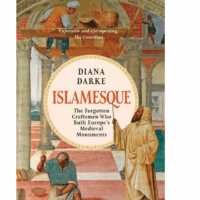

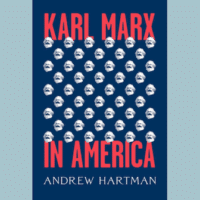
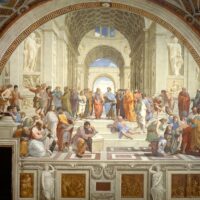
![[Source: acfr.org]](https://mronline.org/wp-content/uploads/2025/06/Screenshot-2025-06-17-at-105753 PM-200x200.png)

